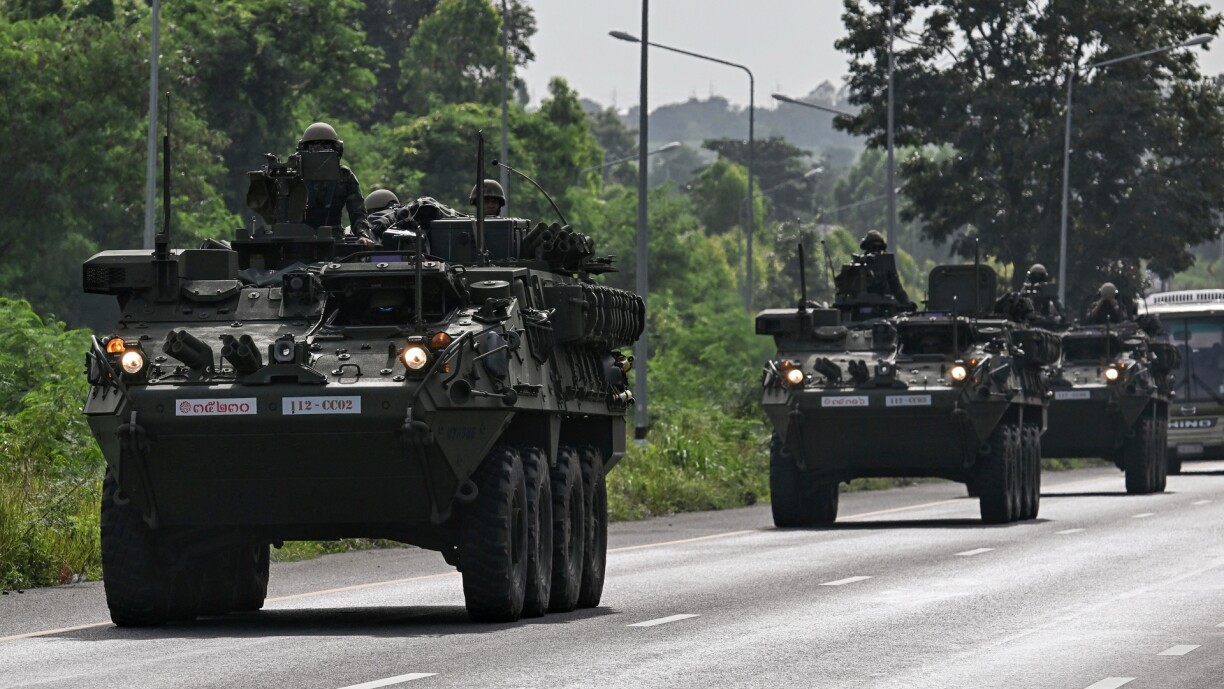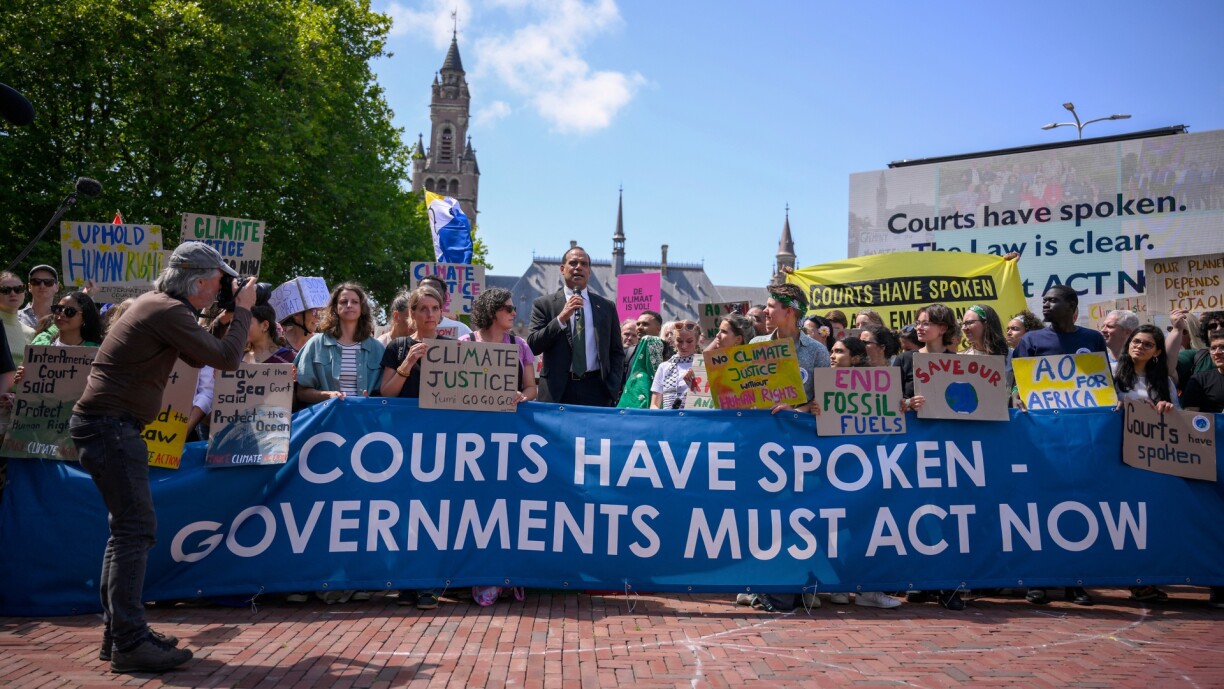
Here are five things you should know at the end of this week:

A major technical incident at Post Luxembourg disrupted phone and internet services on Wednesday, temporarily cutting access to emergency numbers 112 and 113 before being resolved by 8.15pm.
Major disruption – On Wednesday afternoon, Post Luxembourg experienced a major technical failure that disrupted mobile, internet, and fixed-line services for several hours. Beginning around 4.15pm, customers reported widespread issues with connectivity, including an inability to place calls or access 5G networks.
By early evening, the disruption had disabled access to emergency numbers 112 and 113 for Post users, prompting serious concern. While some services began to recover after 7.30pm, Post officially gave the all-clear at 8.15pm, stating that most services had been restored.
The outage was traced to a software failure affecting key systems that control both mobile and internet infrastructure, though Post stressed that a cyberattack and human error had been ruled out.
Contingency measures – During the outage, the Grand Ducal Fire and Rescue Corps (CGDIS) and the police were forced to implement emergency protocols to maintain public safety. CGDIS activated its Operations Control Centre and issued guidance via LU-Alert and social media, advising people in need of urgent medical help to go directly to hospitals or the nearest fire station, where staff could relay messages by radio.
Alternative phone numbers and email addresses were also provided by the police, and residents were urged to reach out via other telecom providers when possible. By 7.30pm, full nationwide emergency coverage had been restored, but authorities noted significant delays in emergency alerts and difficulty mobilising personnel during the disruption.
Failures acknowledged – In response to the outage, Prime Minister Luc Frieden addressed the situation during Thursday’s Government Council press briefing, emphasising the need to reassess national resilience systems. He acknowledged clear failures in how emergency communications were handled, including delays in LU-Alert messages and the inability of users to switch to another network during outages.

In 2024, Luxembourg’s National Pension Insurance Office (CNAP) paid €6.8 billion in pensions to over 233,000 people, with 51.6% of recipients living abroad.
France, Germany, and Belgium had the highest numbers of Luxembourg pensioners, while the Baltic states had the lowest.
CNAP also handled nearly 24,000 new pension applications and received over 120,000 calls to its hotline, reflecting strong public demand for services.
Cross-border contributions – In 2024, the CNAP disbursed a total of €6.8 billion in pension payments to 233,286 beneficiaries, with more than half of these payments (51.6%) going to recipients living outside the country. This marks a significant shift, as Luxembourg now pays more pensions abroad than within its own borders.
The growing number of international beneficiaries reflects Luxembourg’s long-standing role as a hub for cross-border workers and retirees, many of whom have contributed to the country’s pension system but now live elsewhere.
Migration links – Among the 117 countries where Luxembourg pensions are sent, France topped the list with 18.4% of all payments (42,294 pensions), followed by Germany with 11.69% (26,865 pensions) and Belgium with 9.74% (22,394 pensions). In contrast, the Baltic states recorded the fewest Luxembourg pension recipients, highlighting the more limited historic economic and labour migration links between those nations and the Grand Duchy.
Bureaucracy – Alongside pension payments, CNAP managed a high volume of administrative and support tasks, including 23,879 new pension applications and the processing of extensive correspondence – nearly 2,000 incoming items per day and over 275,000 outgoing letters throughout the year. Public engagement remained high, with 13,774 formal information requests, 26,700 in-person visits, more than 120,000 calls to the ‘Pensions’ hotline, and over 45,000 digital inquiries through the official CNAP website.

The Luxembourg government has submitted a formal bid to acquire the bankrupt Liberty Steel site in Dudelange to revitalise the area and create jobs.
If approved, the state purchase would initiate a multi-year redevelopment including demolition, infrastructure renewal, and potential defence-related projects.
Officials and unions stress the need for diversified job creation and caution against repeating past mismanagement that led to Liberty Steel’s collapse.
Government intervention – Following Liberty Steel’s bankruptcy in November 2024 and the collapse of a potential takeover by Turkey’s Tosyali group, the Luxembourg government has stepped in to prevent the industrial site’s indefinite stagnation. During a Government Council meeting, it was confirmed that an official offer had been submitted to the court-appointed receiver.
The site, situated in the strategically located Wolser B industrial zone between Bettembourg and Dudelange, has remained mostly inactive, with around 100–120 employees still formally under contract but without operational roles. The government aims to ensure public control over the land to foster economic development, job creation, and long-term planning, rather than leaving it vulnerable to speculative private interests.
Valuable asset – Economy Minister Lex Delles outlined that the site requires significant preparatory work before any new projects can begin. This includes demolishing existing structures, stabilising the ground, and conducting a full renovation – a process expected to take one to two years.
The government intends to increase the site’s industrial density and is exploring the addition of wind turbines in cooperation with local municipalities. Part of the redeveloped land is expected to be allocated to the defence sector, although no final plans have been confirmed.
The site is Luxembourg’s largest available industrial plot, with direct motorway and rail access, making it a valuable asset for long-term strategic use.
Avoiding repeat mistakes – While the government’s redevelopment vision focuses on high-quality and safe employment, union representatives have urged a more inclusive approach that also provides opportunities for less specialised workers. Jean-Luc de Matteis of the Independent Luxembourg Trade Union Confederation (OGBL) warned that an overemphasis on highly qualified roles could neglect broader employment needs, especially in a fragile industrial job market.
He emphasised the importance of social and economic stability, calling for proactive government measures to avoid a repeat of the Liberty Steel debacle, which he attributes to a sequence of failed oversight: an aborted sale, shareholder mismanagement, and poor post-bankruptcy planning.

Fierce border clashes between Thailand and Cambodia have killed at least 15 people and displaced over 138,000, prompting warnings from Thailand’s acting prime minister that the situation could escalate into full-scale war.
Fighting involving jets, tanks, and artillery resumed Friday despite international calls for calm, with both sides blaming each other for civilian casualties and diplomatic ties rapidly deteriorating.
Thousands of Thai civilians, many in makeshift shelters, described fleeing in terror from bombardments, with some saying this conflict feels more intense and damaging than the 2011 border skirmishes.
Border clashes – The conflict, the most intense in over a decade, began Thursday with artillery fire, air strikes, and ground troop movements, stemming from a long-standing territorial dispute along the 800-kilometre border. Thailand’s acting Prime Minister Phumtham Wechayachai said the situation, while still limited to local clashes, could spiral into a broader war if tensions continue to rise.
The UN Security Council is set to hold an emergency meeting on the matter, while regional leaders, including Malaysia’s Anwar Ibrahim, have urged both sides to pursue dialogue. Despite these efforts, the humanitarian impact has already been significant, with nearly 300 shelters opened in Thailand’s border provinces.
Diplomatic fallout – Thailand reported 15 deaths – 14 civilians and one soldier – and dozens more wounded, including troops, after Cambodia launched rocket and artillery strikes across the border. Thai authorities responded with retaliatory air strikes using F-16 fighter jets.
The violence has targeted both military positions and civilian infrastructure, including a hospital and a petrol station, further raising alarm. Diplomatic fallout has been swift: ambassadors have been expelled, and Cambodia has downgraded diplomatic relations to the lowest level.
The situation worsened after a Thai patrol was hit by a landmine, prompting Thailand to recall its envoy and eject the Cambodian ambassador.
Makeshift shelters – In the Surin province, more than 3,000 evacuees have taken refuge in shelters like the one set up at Surindra Rajabhat University, where classrooms were rapidly transformed into care centres. Residents told AFP of rushing to safety as gunfire and explosions echoed through their towns.
Evacuees described the fighting as more destructive than previous clashes. Medical teams and mental health professionals are now working alongside local authorities to provide support, but many evacuees remain fearful and uncertain about when or if they can return home.

The International Court of Justice has issued a landmark advisory opinion stating that countries have a legal obligation to tackle climate change, and failure to do so may warrant reparations for affected nations.
The ruling, spurred by a student-led campaign from Vanuatu, marks a major victory for vulnerable states and could strengthen climate lawsuits and pressure governments worldwide.
Legal experts say the opinion could reshape national laws and make fossil fuel expansion riskier, signalling growing accountability for states and companies contributing to global warming.
Landmark opinion – In a historic ruling, the International Court of Justice (ICJ) declared that climate change constitutes an “urgent and existential threat”, and that states have clear legal duties under international law to prevent environmental harm caused by greenhouse gas emissions. While the opinion is not legally binding, it carries significant political and legal influence and explicitly states that countries violating their climate obligations could be held accountable for “wrongful acts” and required to pay reparations.
These reparations, according to the ICJ, could include restitution and compensation – provided a clear causal link is established between the pollution and the damage experienced. The opinion formalises a pathway for states, especially those suffering the worst effects of climate change, to pursue accountability and justice through legal channels.
Existential threats – The ICJ’s advisory opinion was the culmination of a six-year effort led by Vanuatu and inspired by a group of law students from the Pacific region who sought to elevate the global climate crisis to the world’s highest court. For low-lying island nations like Vanuatu, Tuvalu, and Kiribati – which face existential threats from rising seas and intensifying weather events – the ruling offers both moral validation and strategic leverage.
Leaders and campaigners from these nations hailed the decision as a transformative moment in the global climate justice movement, empowering smaller states to demand more from high-emitting nations. It also provides a powerful new legal tool for citizens and advocacy groups around the world seeking to challenge inadequate climate policies or fossil fuel expansion through national courts.
Fossil fuels under fire – Experts believe the ICJ’s opinion could significantly influence both domestic legal systems and international climate policy, particularly in countries that integrate international law into their national frameworks. The court’s explicit mention of fossil fuel production, subsidies, and licensing as potential sources of legal liability raises the stakes for governments and companies involved in the fossil fuel industry.
Analysts suggest this could lead to increased litigation risks for oil and gas projects, constrain future permits and investments, and empower communities to challenge carbon-heavy developments. Even in states where international law is not automatically binding, courts are likely to take the ICJ’s opinion into account when interpreting environmental responsibilities, thereby tightening the legal landscape around fossil fuel activities and reinforcing the pressure on governments to accelerate climate action.
Business & Tech – The European Central Bank held interest rates steady Thursday as policymakers waited to see whether the eurozone would be hit by higher US tariffs threatened by President Donald Trump.
Science & Environment – Global police organisation Interpol has lifted a red wanted notice requesting the arrest of anti-whaling activist Paul Watson, with the campaigner saying Tuesday he was finally free of the Japanese whalers’ “vendetta.”
Entertainment – Ozzy Osbourne, the legendary frontman of heavy metal group Black Sabbath, died on Tuesday at the age of 76, his family said, just weeks after he gave an epic farewell concert.
Weather – Luxembourg saw 1,415 lightning strikes in 2024, slightly above the yearly average, with the Éislek region appearing most prone to lightning due to its higher terrain.
Luxembourg City – Get ready for two days of free family fun as ‘Kanner in the City’ takes over Luxembourg City’s squares with games, crafts, and playful adventures themed around five elements.
Healthcare – While Steinfort has lifted its health alert after clean water test results, health authorities remain unable to identify the source of the Legionnaires’ disease cluster that has infected eight people in the region.

Your Weekly Recap is published every Friday at noon. Read earlier versions.